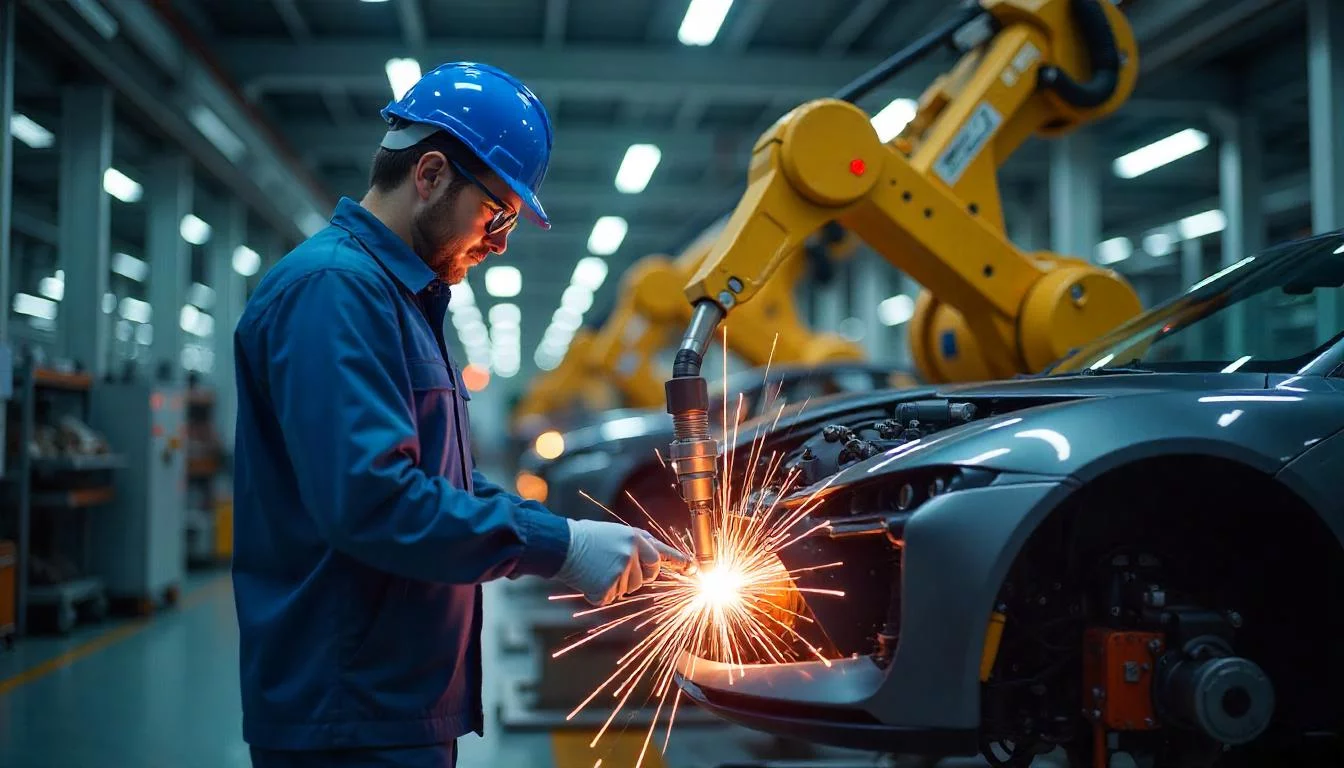Artificial Intelligence (AI) has revolutionized the healthcare industry in numerous ways. One of the most significant impacts of AI in healthcare is the ability to expedite medical diagnoses. AI-powered technologies can analyze substantial amounts of medical data and provide doctors and healthcare professionals with quick and accurate diagnostic insights. By leveraging machine learning algorithms and natural language processing, AI is transforming the traditional medical diagnostic process and helping healthcare providers to improve the accuracy and efficiency of their diagnoses.
This article will explore how AI is expediting medical diagnosis and its potential to revolutionize the healthcare industry.
1. Image Analysis
AI isn’t just futurism – it’s playing a very real role in healthcare today. AI-based image analysis is aiding clinical teams to detect conditions, injuries, and other abnormalities in medical images such as X-rays, MRI, and CT scans. AI can detect subtle nuances in the scans due to its deep learning capabilities that verify extremely complex patterns even better than an expert clinician. AI is making medical diagnosis quicker, more accurate and cost-effective. Already, AI hospitals are being built using AI technologies for targeted diagnosis and treatments, revolutionizing traditional healthcare models. AI certainly looks set to be a dominating force in the future of healthcare!
Automatic positioning and centering in CT (Computed Tomography) imaging is a process that uses artificial intelligence (AI) algorithms to accurately position and center the patient in the CT machine. This is important because proper positioning and centering ensure that the images captured are of the highest quality and provide the most accurate information. In AI-based automatic positioning and centering, the CT machine uses image analysis algorithms to determine the location of the patient’s anatomy. It automatically adjusts the position of the table and gantry to align with the desired imaging area. The algorithms use information from previous scans and patient data to determine the correct position and can also consider any movement or changes in the patient’s anatomy. This process can significantly reduce the time and manual effort required for proper positioning and centering, making the imaging process more efficient and effective. Thus, improving the accuracy of the images and reducing the total time a patient is exposed to radiation.
2. Predictive Analysis
AI is revolutionizing healthcare, leveraging AI algorithms like predictive analysis to give medical professionals an edge. Predictive analysis can analyse patient data, examining a case’s known and unknown factors and identifying early warning signs of illnesses. AI allows us to crunch large and complex datasets for better, more targeted treatments for patients; new AI advancements in healthcare are making it easier to take preventive action before illnesses set in. AI technologies have already transformed many aspects of modern healthcare, with this tool offering us one more way to improve patient outcomes.
3. Natural Language Processing
AI has revolutionized the healthcare industry, providing an unprecedented capability for processing, and analyzing vast amounts of patient data. AI-driven Natural Language Processing (NLP) technologies use machine learning to analyze electronic medical records, quickly spotting trends and suggesting treatments or therapies based on the data. That way, AI serves as an invaluable partner in enabling quicker, smarter decisions within healthcare – helping save time, money, and lives
3 Applications of NLP in Healthcare
i. Optical Character Recognition (OCR)
OCR technology is revolutionizing the healthcare industry by enabling speedy and accurate conversion of physical documents into digital formats. This advanced text recognition process unlocks a wealth of invaluable information, transforming unstructured data sets such as images or text files into structured datasets for analyses with natural language processing pipelines. Clinically-sound medical notes, patient intake forms, discharge summaries, and more can now be easily digitized to increase accuracy while reducing time spent on manual entry – leading to improved decision-making capabilities across all levels of care delivery.
ii. Named Entity Recognition (NER)
NER is an invaluable information extraction technique that hones in on real-world objects to discern specific categories. Commonly referred to as entity chunking, extracting, and identification, NER has a range of applications – particularly within healthcare contexts. Discover more today!
iii. Text Classification
By utilizing Natural Language Processing (NLP) tools such as text classification, healthcare providers can more effectively identify and serve at-risk patients. This technique allows them to analyse records and assign relevant tags or labels based on predetermined categories which helps manage the data in a meaningful way.
4. Machine Learning Algorithms
AI has been increasingly implemented to help improve diagnosis and treatment in healthcare AI powered by machine learning algorithms can quickly identify patterns in medical data that otherwise could take a medical professional far more time or even impossible to recognize. AI uses algorithms to sort through and process these medical data, saving immense amounts of time and energy from the most valuable people: doctors. AI’s ability to scan an exponentially larger amount of data than the human eye makes it a powerful assistant for healthcare professionals. The implications for AI in healthcare are immense; AI will enable rapid diagnoses, faster treatments with fewer mistakes, and improved overall patient outcomes in an ever-shifting field
5. Diagnostic Decision Support
AI is revolutionizing healthcare, and one way it is doing this is through diagnostic decision support. AI can provide healthcare professionals with information to help support diagnoses, such as differential diagnosis and the likelihood of a condition being present. This means that AI has the potential to make diagnosing patients much more accurate and efficient. AI’s powerful capabilities could even help diagnose complex cases and reduce misdiagnoses. AI-driven diagnostic decision support could be a game changer in healthcare, offering incredibly useful insights for medical professionals, resulting in better patient outcomes.
CDSS is a type of DSS that is specifically designed to aid healthcare professionals in making clinical decisions. It provides real-time, patient-specific information to assist in clinical decision-making, and can improve the quality of care and patient outcomes.
AI has the potential to improve the accuracy and efficiency of clinical decision support systems (CDSS). In some studies, AI-powered CDSSs have been shown to outperform traditional decision-making methods in terms of accuracy, timing, and cost. For example, A study from NCBI found that an AI-powered CDSS reduced the time taken to diagnose a certain condition from an average of 6 minutes to just 36 seconds. In addition, AI-powered CDSSs have been found to reduce the cost of care for certain conditions compared to traditional decision-making methods. Furthermore, AI-powered CDSSs have been found to reduce the risk of medical errors, as they are more likely to consider all relevant patient data when making a decision.
6. Streamlined Diagnostic Processes
AI is revolutionizing healthcare by streamlining diagnostic processes. It can automate mundane tasks, enabling physicians to reach a diagnosis quickly and accurately, and reducing the time dedicated to diagnostics. AI’s ability to learn means it can be customized to fit any healthcare system in the world, so physicians no longer must flip through multiple medical journals or search through complex databases. AI-assisted diagnostic processes may soon become standard procedure in the healthcare industry as more professionals realize its endless potential.
7. Personalized medicine
Personalized medicine is an approach to healthcare that tailors treatments and therapies to individual patients based on their unique characteristics and medical history. AI can play a crucial role in this approach by providing healthcare providers with valuable insights and predictions based on enormous amounts of medical data. AI algorithms can analyze patients’ genomic data, medical history, lifestyle habits, and other relevant information to predict their likelihood of developing certain conditions and to determine the most effective treatment plans. This can result in more accurate diagnoses, improved patient outcomes, and reduced healthcare costs. By leveraging the power of AI, personalized medicine has the potential to revolutionize the way healthcare is delivered and improve patient outcomes.
8. Improved Patient Outcomes
Artificial Intelligence (AI) has the potential to revolutionize the healthcare industry and bring about improved patient outcomes. AI algorithms can analyze large amounts of medical data, including patient symptoms, medical history, and test results, to help medical professionals make faster and more accurate diagnoses. This can lead to prompt and effective treatment, reducing the risk of complications and improving patient outcomes. Moreover, AI can also assist in monitoring patients’ progress, allowing healthcare providers to adjust treatment plans as needed to ensure the best possible outcomes. With AI technology, healthcare providers can work more efficiently and effectively, leading to better health outcomes for patients.
9. Reduced Workload for Healthcare Professionals
Healthcare professionals have a lot on their plate and are often stretched thin, having to manage a large workload and balance their time between patient care and administrative tasks. However, the integration of artificial intelligence (AI) in healthcare can significantly ease this burden. AI technology can automate routine and repetitive tasks such as data entry, record keeping, and appointment scheduling, freeing up more time for healthcare professionals to focus on what truly matters – providing quality patient care. The reduced workload also gives healthcare professionals more energy and a less-stressed working environment, leading to better overall health and well-being. AI can play a critical role in improving the quality of care and enhancing the working conditions of healthcare professionals.
Artificial Intelligence (AI) can help expedite medical diagnostics by assisting healthcare professionals in analyzing medical images and data, making predictions and recommendations based on patterns found in patient data, and streamlining the diagnostic process using natural language processing and machine learning algorithms. This can lead to faster and more accurate diagnoses, improved patient outcomes, and increased efficiency in the healthcare system. Additionally, AI can help reduce the workload for healthcare professionals and provide them with more time to focus on patient care
Let’s Build Digital Excellence Together











